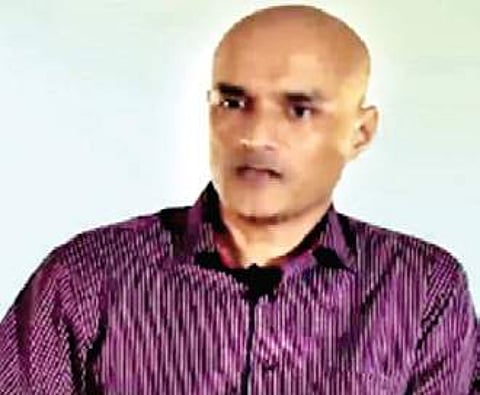

Indians across the country, including those given to acting as apologists for Pakistan’s actions, saw the stark reality and venality of Pakistani behaviour, when the 70-year-old mother and the wife of Kulbhushan Jadhav were subject to humiliation, dishonour and distress, by the Pakistani military establishment.
While External Affairs Minister Sushma Swaraj graphically spelt out the outrage of the nation in her address to Parliament, attention should not be diverted from the implications of Pakistani behaviour. We are dealing with a military-dominated neighbour, whose army is still suffering the pain of humiliations it has suffered, by triggering conflicts in the past.
The judicial dimensions in the current situation will again attain salience when the International Court of Justice (ICJ) resumes hearings this month on the Jadhav case, filed by India. The court had held that consular access had to be given to Indian consular officials to meet Jadhav. Pakistan has held that consular access is not permitted in case of espionage and terrorism. India can reject this as Article 36 of the Vienna Convention on Consular Relations states that Indian consular officials have the “right” to visit any Indian “national”, “who is in prison, custody or detention,” in a foreign country.
Pakistan is clearly in violation of these provisions, which are meant to ensure that the person under trial is given a suitable defence. Jadhav has been subjected to a secret trial and India has not been given details of charges he faces. These facts and much more will no doubt emerge when court proceedings resume. While Pakistan may defiantly challenge the jurisdiction of the court and reject its demands like it has rejected consular access to Jadhav, it will find itself guilty of violating international law—a reputation it can hardly absorb nonchalantly.
All this is occurring amidst growing political uncertainty in Pakistan, as it approaches general elections in mid-2018. The army is now sitting on the driver’s seat. Helped by the judiciary, it has got rid of Nawaz Sharif. The army’s aim is clearly to continue back seat driving by ensuring that a weak and fractious government emerges.
The army’s recent behaviour in the face of public demonstrations is revealing. When a large mob of well-equipped “Bareilvis” took over control of parts of Islamabad, the government asked the army to intervene. Army Chief General Bajwa instead asked the Prime Minister to avoid use of force. The crisis ended with an army Major General paying the demonstrators to disperse. The relatively peaceful “Bareilvis” have joined Pakistani “Deobandis”, many of who have been long-term allies of the ISI, in resorting to coercion and violence.
Even the army in Pakistan looks like a house divided. There is no love lost between General Bajwa and his predecessor General Raheel Shareef, who is now a Saudi protégé commanding a Riyadh-based “Islamic” army. To balance his predecessor’s pro-Saudi inclinations, Bajwa paid a visit to Iran, to pledge friendship to the Iranians. Raheel Shareef retaliated by getting the Saudis to invite the chairman of Pakistan’s Joint Chiefs of Staff Committee, General Zubair Mehmood Hayat, to Riyadh, to meet Crown Prince Mohammed bin Salman.
General Hayat heads Pakistan’s Nuclear Command Authority and is obviously sulking that he was overlooked for appointment as Army Chief by the appointment of Bajwa, who is junior to him. In these circumstances, it remains to be seen how Bajwa handles the Kulbhushan Jadhav case. With general elections scheduled later this year, Pakistan is going to continue living through tumultuous times.
G Parthasarathy
Former diplomat
dadpartha@gmail.com